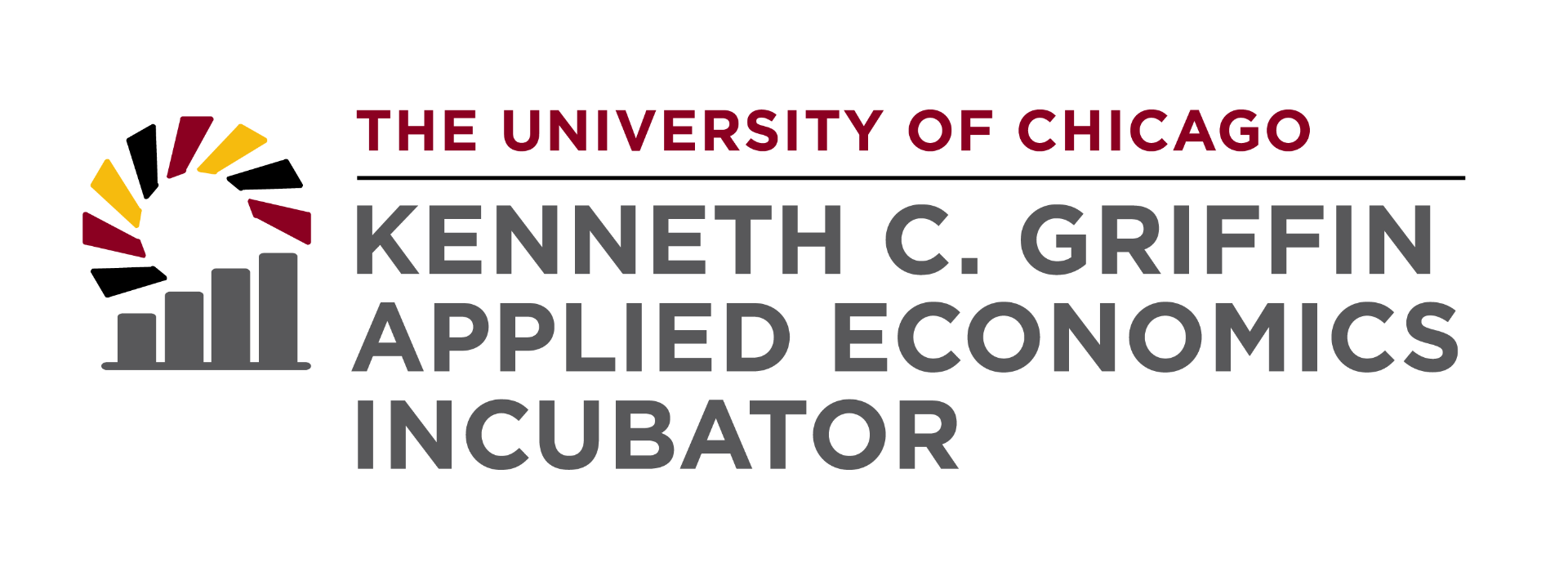2021-2022 Incubator | The Data Revolution: New Econometric Tools for the Big Data Era
Research Grants 2021-2022 Titles – “The Data Revolution”
To begin a wider campus discussion, a Request for Proposals (RFP) was sent out to all faculty in the College to help begin answering some questions posed by the Incubator. The funding was awarded to the following faculty for projects:
| Principal Investigators | Co-Investigator(s) | Title |
| Guillaume A. Pouliot | Samuel Higbee (Ph.D. Student in the Kenneth C. Griffin Department of Economics) | “Optimal Transport as a Regression Tool” |
| Raul Castro Fernandez | “Discovering Alternative Data for Economic Research” | |
| Eyal Frank | Anouch Missirian (Toulouse School of Economics), Sushant Banjara (Ph.D. Student, Harris School of Public Policy) | “Land-Use Restrictions and Perverse Incentives: Using Machine Learning to Evaluate the Endangered Species Act from High-Frequency Satellite Data” |
| Peter Ganong | Jonathan Gruber (MIT), Pascal Noel (Chicago Booth School of Business) | “Experimental Estimates of Willingness to Pay for Unemployment Insurance” |
| Jeffrey Grogger | Tom Kirchmaier (Centre for Economic Performance, London School of Economics) | “Arrest, Risk Assessment, and Domestic-Abuse Recidivism” |
Call for Proposals
The Causality Challenge
The Griffin Applied Economics Incubator invites submissions for The Causality Challenge beginning December 1, 2021. The Causality Challenge intends to discover and develop talent in applying econometrics and machine learning for prediction and causal inference.
For the prediction aspect of the Challenge, participants will be asked to predict specified variable(s) from a training set, and results will be assessed based on prediction performance on a test set. For the causality aspect, participants will be asked to estimate the causal effect of one specified variable on another and explain/motivate the approach taken. To assess the results for the causal inference part, the jury will consider the credibility of the research approach as well as the plausibility of the final estimate.
Awards/compensation:
The top three winners will receive funding toward a Research Assistant position with a faculty member working in a related field at the University of Chicago. Positions will be full-time with a competitive rate of $18/hr., 30 hours per week for 10 weeks plus a $2500 housing stipend.
Submission Guidelines and Documents
Causality Challenge Instructions Causality Challenge DatasetsSubmission Link
Submit to The Causality ChallengeSubmission Deadline
Sunday, January 9, 2022 at 11:59 p.m. CST.
